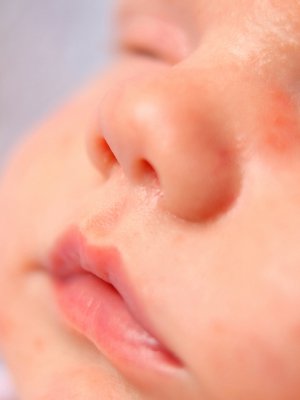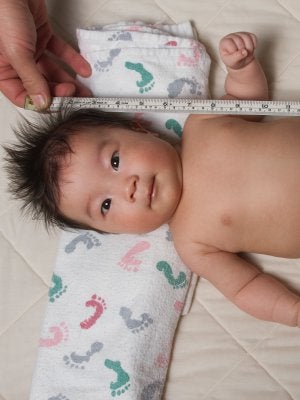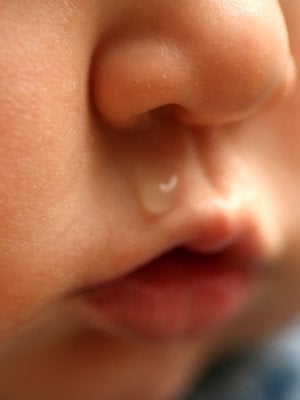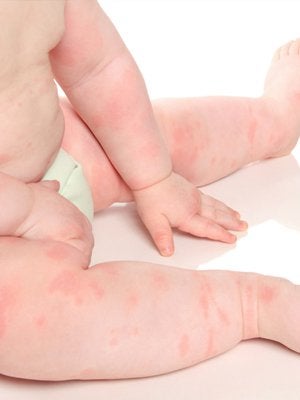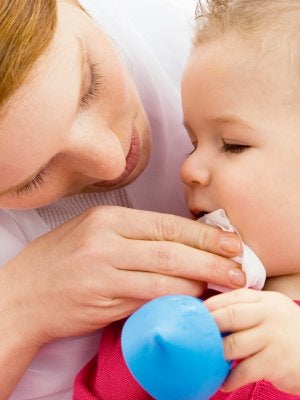
We believe breast milk is the best food for infants. When in consultation with their healthcare professional, mothers and families find that optimal breastfeeding is not possible due to their infant’s medical condition, formulas for special medical purposes play a vital role in providing essential nutrients to infants. We have a global commitment to market breast-milk substitutes responsibly.
This website is about the management of cows’ milk protein allergy and nutritional solutions intended for infants. By continuing on this website, you accept that Nestlé Health Science supplies the information at your own request.
Are you a healthcare professional (HCP) or a parent?
REFLUX & REGURGITATION
Reflux occurs when a baby brings up milk during, or shortly after, feeding.1 Regurgitation is when this refluxed milk reaches the mouth and may be spat out. Reflux and regurgitation are more passive actions and should not be confused with vomiting, which is the forced muscular expulsion of milk from the stomach.1
Reflux and regurgitation may be unsettling to witness, but are both normal processes that can occur due to a physiological immaturity of the lower esophageal sphincter. As the digestive tract develops, the situation usually resolves; however, before this development is complete, avoiding force-feeding an infant too much milk at one time and regular burping can help reduce the occurrence of reflux and regurgitation.1
What causes regurgitation in infants?
In rare cases, there may be an underlying cause to excessive reflux or regurgitation. These include gastro-oesophageal reflux disease, where the muscle valve between the oesophagus and stomach is weak and fails to function correctly, or a blockage in the digestive tract.1
Reflux and regurgitation as symptoms of Cows' Milk Allergy
CMA and reflux are considered to be among the most common disturbances in infants.3,4 Reflux and regurgitation are known to be common symptoms of CMA.4,5,6 Cows' milk protein has been shown to be associated with and responsible for inducing symptoms of reflux in almost 50% of infants under the age of 12 months.3,4,5
- Gastrointestinal/Digestive: Vomiting, reflux, regurgitation, anorexia, diarrhoea, constipation, abdominal pain, blood in stools
- Respiratory: Chronic cough, sneezing, wheezing, shortness of breath, runny nose
- Skin: Rash, atopic dermatitis, urticaria, angioedema
- General: Failure to thrive, anaphylaxis, insomnia, inconsolable crying, pallor and tiredness

- The higher the volume and the severity of the regurgitation, the higher the score
- Only score infants aged >2 weeks, <6 months
- In addition to the regurgitation score, if any of the following signs or symptoms related to CMA are also present, they should also be given a score using the CoMiSSTM tool. These include crying, diarhhoea, constipation, skin (atopic dermatitis and urticaria) and respiratory symptoms
COMISSTM AWARENESS TOOL
The Cows' Milk-related Symptom Score (CoMiSSTM) is a simple, fast and easy-to-use awareness tool designed to help you more easily recognise the signs and symptoms that can be cows' milk-related in infants and young children.

If you suspect your patient is suffering from symptoms that may be suggestive of CMA, use the CoMiSSTM tool to score and assess the likelihood of CMA.
Other Symptoms of Cows' Milk Allergy
References
- NHS Choices. Reflux in babies information sheet. http://www.nhs.uk/conditions/reflux-babies/Pages/Introduction.aspx (Accessed April 2016)
- Vandenplas Y. and De Greef E. Acta Paed. 2014;103(6)e243–50
- Iacono G., et al. J Al Clinical Immunol. 1996;97(3):822–7
- Cavatai F., et al. J Pediatr Gastorenterol Nutr. 2000;30:s36–44
- Salvatore S. and Vandenplas Y. Pediatrics. 2002;110:972–84
- Ravelli AM., et al. J Pediatr Gastroenterol Nutr. 2001;32:59–64
- Lifschitz C. and Szajewska H. Eur J Pediatr. 2015;174:141–50
- Høst A. Pediatr Allergy Immunol. 1994;5:1–36
- Koletzko S., et al. J Pediatr Gastroenterol Nutr. 2012;55(2):221–9
- Vandenplas Y., et al. Acta Paed. 2015;104:334–39
- Luyt D., et al Clin Exp Allergy, 2014;44:642–672
- National Institute of Health Care and Excellence Clinical Knowledge Summarises. Cows’ milk protein allergy in children, 2015 http://cks.nice.org.uk/cows-milk-protein-allergy-in-children#!diagnosissub/-617759 (Accessed October 2016)
IMPORTANT NOTICE: Mothers should be encouraged to continue breastfeeding even when their babies have cows' milk protein allergy. This usually requires qualified dietary counselling to completely exclude all sources of cows' milk protein from the mothers’ diet. If a decision to use a special formula intended for infants is taken, it is important to follow the instructions on the label. Unboiled water, unboiled bottles or incorrect dilution can make babies ill. Incorrect storage, handling, preparation and feeding can eventually lead to adverse effects on the health of babies. Formula for special medical purposes intended for infants must be used under medical supervision.

